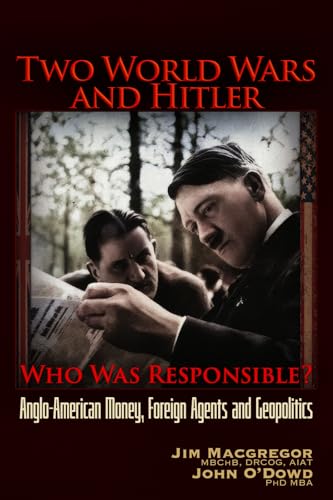
Germany and Propaganda in World War I
by David Welch
"Pacifism, Mobilization and Total War"
Popularity
3.36 / 5
* A book's popularity is determined by how it compares to all other books on this website.
Where to buy?
Buy from Amazon* If you buy this book through the link above, we may receive a small commission at no extra cost to you.
Germany and Propaganda in World War I by David Welch
Details
War:
World War I
Perspective:
Researcher
True Story:
Yes
Biography:
No
Region:
Europe
Page Count:
564
Published Date:
2014
ISBN13:
9780857736116
Description
Main Themes and Topics
David Welch's Germany and Propaganda in World War I delves into the multifaceted role that propaganda played in the German war effort during the First World War. A central theme of the book is the examination of how propaganda was perceived and utilized by the German leadership, highlighting its novel status at the time as a crucial component of warfare. The book meticulously details how the German authorities attempted to mobilize public opinion through various mediums, including newspapers, journals, film, and parliamentary debates. Welch argues that while Germany did recognize propaganda as a vital tool, its ultimate downfall lay in the failure of military authorities and the Kaiser to successfully mobilize public sentiment and connect leadership with the populace.
Another significant focus of the book is the societal aspects of Germany during the Great War. Welch takes an in-depth look at the political dynamics, the dissemination of propaganda, and the response of public opinion amid the strains of total war. By investigating the interaction of these elements, he provides a comprehensive analysis of the internal factors contributing to Germany's moral disintegration during the conflict.
Writing Style and Tone
Welch's writing is analytical and well-researched, characterized by a strong emphasis on factual and historical accuracy. He adopts an objective tone, dissecting complex ideas and presenting them in an accessible yet scholarly manner. The narrative is supported by a wealth of primary and secondary sources, giving depth to his analysis and allowing readers to appreciate the subtleties of Germany's wartime propaganda efforts.
The book is structured in a way that logically unfolds the interaction between Germany's propaganda strategies and their broader socio-political implications. Welch's articulate style ensures that even readers without a profound background in history can engage with his arguments and insights.
Criticism
While Germany and Propaganda in World War I is praised for its thoroughness and the breadth of its sources, some critics may argue that Welch's focus on the internal dynamics of Germany could benefit from more extensive comparisons with Allied propaganda efforts to provide a fuller context. Additionally, the book's dense academic language, while precise, might prove challenging for lay readers seeking a more narrative-driven account of history.
Brief Summary (no spoilers)
The book offers a detailed exploration of how Germany harnessed propaganda as a wartime tool during World War I. Welch challenges the notion that German propaganda was entirely ineffective by arguing that the failure lay more in leadership deficiencies and a disconnect between Germans' leadership and their people. Through an examination of a variety of sources from film to parliamentary records, the book sheds light on the internal struggles within Germany and how they impacted the country's capacity to sustain the war effort. Ultimately, Welch offers a nuanced view that adds depth to the understanding of propaganda's role in wartime, making the book a valuable resource for students of history and military studies.









